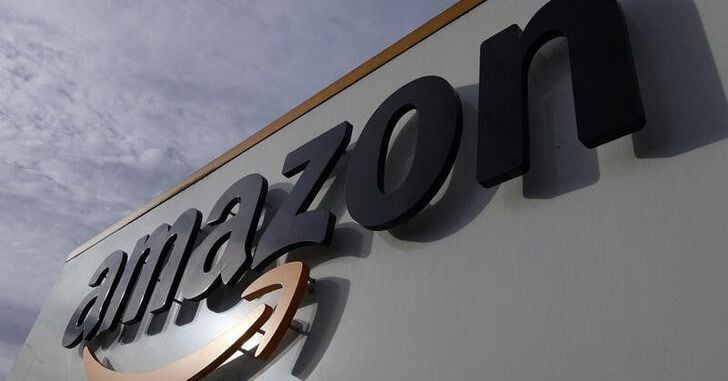- cross-posted to:
- [email protected]
- cross-posted to:
- [email protected]
WASHINGTON, Sept 26 (Reuters) - The U.S. Federal Trade Commission filed a long-awaited antitrust lawsuit against Amazon.com (AMZN.O) on Tuesday, charging the online retailer with harming consumers through higher prices in the latest U.S. government legal action aimed at breaking Big Tech’s dominance of the internet.
The lawsuit had been expected after years of complaints that Amazon.com and other tech giants abused their dominance of search, social media and online retailing to become gate keepers on the most lucrative aspects of the internet.
The lawsuit, which was joined by 17 state attorneys general, follows a four-year investigation and federal lawsuits filed against Alphabet’s (GOOGL.O) Google and Meta Platforms’ (META.O) Facebook.
“The FTC and its state partners say Amazon’s actions allow it to stop rivals and sellers from lowering prices, degrade quality for shoppers, overcharge sellers, stifle innovation, and prevent rivals from fairly competing against Amazon,” the agency said in a statement.
The FTC said that it was asking the court to issue a permanent injunction ordering Amazon.com to stop its unlawful conduct. The lawsuit was filed in federal court in Seattle, where Amazon is based.
Amazon shares were down 3%.
Amazon said that the FTC lawsuit was wrongheaded and would hurt consumers by leading to higher prices and slower deliveries.
“The practices the FTC is challenging have helped to spur competition and innovation across the retail industry, and have produced greater selection, lower prices, and faster delivery speeds for Amazon customers and greater opportunity for the many businesses that sell in Amazon’s store,” said David Zapolsky, Amazon’s general counsel.
The FTC said that Amazon, founded in 1994 and worth more than $1 trillion, punished sellers that sought to offer prices that were lower than Amazon’s by making it difficult for consumers to find the seller on Amazon’s platform.
Other allegations include that Amazon gave preference to its own products on its platforms over competitors also on the platform. ‘MONOPOLY POWER’
FTC Chair Lina Khan said that Amazon had used illegal tactics to fend off companies that would have risen to challenge its monopoly.
“Amazon is now exploiting that monopoly power to harm its customers, both the tens of millions of families that shop on Amazon’s platform and the hundreds of thousands of sellers that use Amazon to reach them,” she said.
Khan, while a law student, wrote about Amazon.com’s dominance in online retailing for “The Yale Law Journal” and was on the staff of the House committee that wrote a report issued in 2020 that advocated reining in four tech giants: Amazon.com, Apple (AAPL.O), Google and Facebook.
Amazon’s critics welcomed the lawsuit.
“No corporation has ever centralized this much power across so many crucial sectors. Left unchecked, Amazon’s power to dictate and control threatens the rule of law and our ability to maintain open, democratically governed markets,” said Stacy Mitchell of the Institute for Local Self-Reliance which has pushed for the government to act against Amazon.
The need to take action against Big Tech has been one of the few ideas that Democrats and Republicans have agreed on. During the Trump administration which ended in 2021, the Justice Department and FTC opened probes into Google, Facebook, Apple and Amazon.
The Justice Department has sued Google twice - once under Republican Donald Trump regarding its search business and a second time on advertising technology since Democratic President Joe Biden took office. The FTC sued Facebook during the Trump administration and Biden’s FTC has pressed forward with the lawsuit.



Remember that AZ takes a percentage cut of each sale and is also able to ship cheaper than basically anyone because of their position in the market. So imagine you have a product, and in order to make a profit from said product you have to charge $x. But in order to profit after Amazon’s fees you have to charge $x + $y on Amazon’s platform. So that’s where the “prices too high” cones from. If your product does well on amazon they’ll make their own version and sell it for less than $x. Now you get less sales on AZ and you can’t go back to selling on your own site because you can’t compete with your higher shipping costs, plus AZ can run at a loss on the product they copied from you until you’re out of business… This is where the “prices too low” comes from; the price AZ can offer is too low for you to compete with. After you go out of business, AZ can charge whatever they want. So you see “prices too high” again.
When you start selling a new product you take on risk because there might not be a sustainable market for it. AZ never has to take this risk, but they can reap the rewards from your risk if it does well.
How is that different from what EVEY OTHER RETAILER that has a house brand does?
Because AZ represents almost 40% of the ecommerce market, because no other company is as horizontally and vertically integrated, because no other company has the same stranglehold on third party sellers. I’m not defending the practices of other retailers; that isn’t what this lawsuit is about. It’s the practices COMBINED with the unique position that AZ holds where they control so, soooooo much more than any other retailer. Honestly AZ is like textbook monopolistic and if you still can’t see how that’s a bad thing I can’t really help you any more.